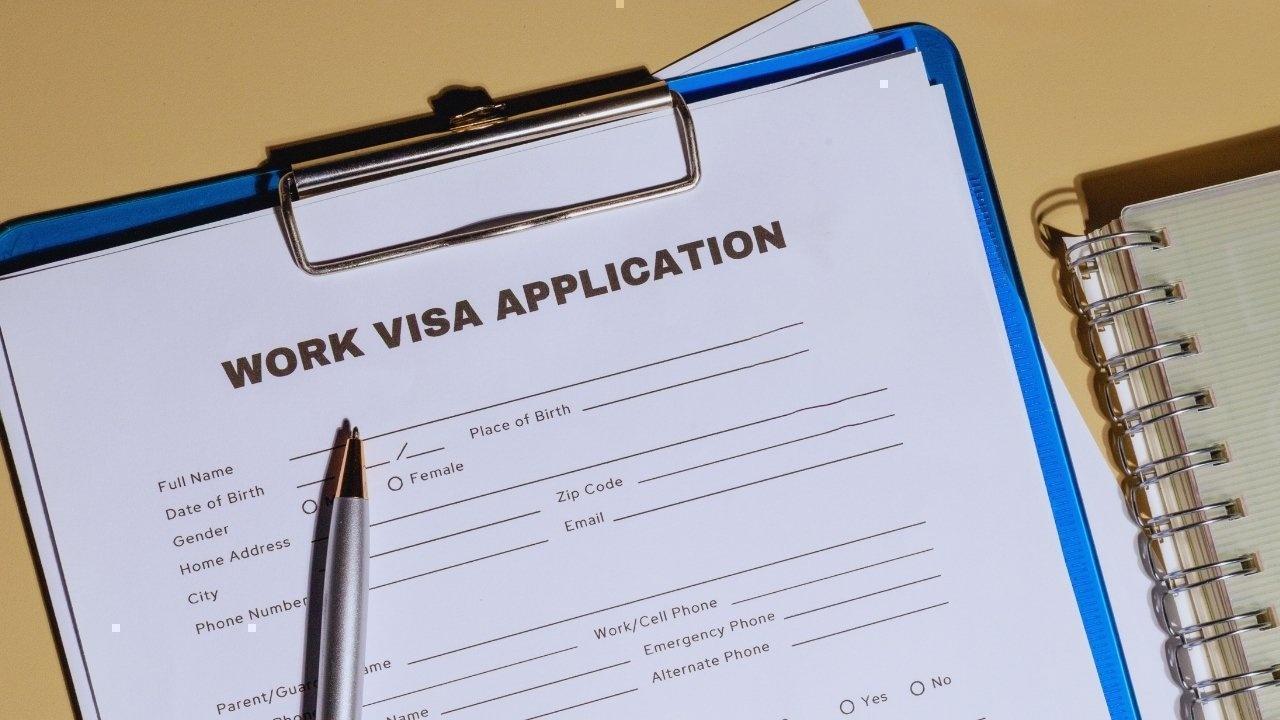
Post by : Anees Nasser
The last few years have seen a significant transition in remote work, evolving from a temporary fix to a permanent facet of working life. Both professionals and freelancers now anticipate the freedom to choose their work locations. In response, various nations have started introducing dedicated long-stay visas aimed at attracting remote workers—individuals employed by global companies or those running online businesses. Unlike standard tourist visas, these permits provide legal allowance to reside in a country for extended periods, sometimes spanning months or years.
For those who are part of the remote workforce, these long-stay visas create a myriad of opportunities: living in a new country, immersing in a different culture, enjoying favorable economic conditions, and maintaining employment. From the perspective of host countries, these visas facilitate foreign income, invigorate local economies, and often come at a lower cost than traditional work-permit systems. Consequently, more nations are unveiling remote worker and "digital nomad" visa programs, each boasting increasingly favorable conditions.
A long-stay remote work visa differs significantly from a regular tourist visa. Here are essential attributes that set these visas apart:
Duration: These permits typically permit stays ranging from 6 months to a year or more, with possibilities for renewal, contrasting sharply with standard tourist visas (limited to 30-90 days).
Work Eligibility: Holders can engage in remote work for non-local employers or clients outside the host country, distinct from local employment.
Income Requirements: Applicants are generally expected to demonstrate a minimum income level, savings, or employment verification.
Tax and Residency Considerations: Some visas come with favorable tax structures or specify that holders are not considered local tax residents if their stay falls under a certain timeframe.
Family and Renewal Options: Many visa schemes accommodate spouses and children and offer pathways for renewals or upgrades to longer-term residency.
Community and Infrastructure: Innovative programs are often backed by reliable internet access, co-working spaces, expat networks, and clear legal guidelines.
When selecting a destination, evaluating duration, cost of living, tax policies, local laws, quality of life, and visa procedures is essential.
Here are several nations offering particularly advantageous long-stay remote work visas in 2025, each with unique benefits and varying criteria.
A popular choice for remote workers, Spain is lauded for its appealing climate, rich culture, robust infrastructure, and tailored visa programs. The Spanish initiative allows digital nomads to reside for up to one year initially, with potential extensions. The attractive tax framework for participants, including a reduced flat tax rate for non-resident workers, enhances its appeal. Furthermore, Spain boasts a vibrant lifestyle, with stunning coastal cities and a large expat populace.
Portugal shines for its affordability, historical charm, pleasant climate, and conducive remote-work environment. The country’s digital nomad visa (often designated as the D8 visa) permits remote workers to live and work online from Portugal for up to a year, with options for longer residency. The high standard of living combined with tax incentives available to non-habitual residents makes Portugal highly attractive.
As a favorite in Asia, Thailand has positioned itself well for remote professionals seeking lengthy stays. Through its long-term resident category and similar digital-nomad programs, remote workers can apply for multi-year visas and enjoy lifestyle perks such as a low cost of living, warm weather, strong tourist infrastructure, and a lively local culture. Certain conditions may allow for tax benefits on foreign-earned income.
The UAE has actively sought to attract remote talent, boasting excellent infrastructure, high quality of life, modern amenities, and often a 0% income tax regime. It is regarded as a top destination for digital nomads in 2025, with remote work visas allowing for stays of one year or more, including options for family inclusion and residency pathways. The luxurious lifestyle, strong connectivity, and advantageous financial landscape make it an enticing choice.
Gaining popularity as a remote work hub, Costa Rica offers a beautiful natural setting, stable governance, and increasingly favorable visa options. Remote workers can stay for up to a year (with potential renewals) and may benefit from low or reduced taxes on foreign income under certain circumstances. Boasting a high quality of life, strong expat communities, and a pleasant climate, Costa Rica remains a top choice for remote workers in Central America.
With its captivating coastal landscapes, Croatia features a digital nomad visa allowing non-local remote employment for up to a year. A notable benefit is that visa holders may not be taxed on foreign income in certain scenarios. Improved internet access and infrastructure in cities like Zagreb, Split, or Dubrovnik make Croatia a feasible destination for remote professionals, offering affordability and access to European landscapes.
When assessing potential nations for remote work visas, five main criteria should be closely considered:
Many programs necessitate proof of stable income (from freelancing or employment) or a specified minimum bank balance. Some may require employment with a non-local employer, along with health insurance proof or security clearance. More favorable income standards increase accessibility.
While a visa might allow residence, tax obligations can be complex. Some nations exempt foreign income from taxes, while others may classify visa holders as local residents after a specified period (like 183 days). It's crucial to understand local tax rules, existing treaties, and how income is taxed.
Not every visa is fixed-term. Some allow for renewal, while others may lead to permanent residence or be valid for a limited span. It’s essential to determine whether you prefer a short visit or longer-term stability, and check if family members can accompany you.
Remote working hinges on dependable internet access, co-working facilities, adequate housing, healthcare quality, community connectivity, and safety. Inadequate infrastructure or high living costs could diminish the advantages offered by the visa.
What occurs when the visa expires? Is exit required? Is there a route to permanent residency or citizenship? Are there restrictions on local employment? Comprehending healthcare obligations, visa renewals, and exit rules is vital.
By contrasting destinations based on these criteria, you can find the perfect fit for your work style, budget, and lifestyle aspirations.
Flexibility: Opt for a location independent of your employer’s base, merging travel with productivity.
Cost Efficiency: Some locations provide a lower cost of living while ensuring comfort and reliable internet.
Lifestyle Improvement: Relocate to preferable climates or vibrant cultures while retaining consistent income.
Tax Savings: In favorable jurisdictions, remote workers can retain more earnings by minimizing or avoiding local taxes.
Community Access: Remote-working hubs often feature co-working areas, networking opportunities, and local expat communities for enhanced productivity.
Tax Responsibilities: Even with a visa, local tax laws might still apply based on the duration of stay or income sources. Unexpected tax residency might occur.
Visa Restrictions: Many permits prohibit working for local businesses; remote work is only permitted for foreign clients/employers. Breaching this could jeopardize your visa.
Cost-Benefit Analysis: Even in cost-effective countries, prime locations may exaggerate living expenses. Scrutinize costs for housing, utilities, healthcare, and workspace.
Healthcare Concerns: Visa programs typically require private health insurance, and the quality of local healthcare can be inconsistent.
Community Dynamics: Living in a tourist-oriented atmosphere can initially be exhilarating, but may distract from focused work without an appropriate setup.
Exit Rules and Renewals: Several visas necessitate leaving the nation upon expiration or require time away before reapplication. Familiarize yourself with all stipulations.
Obtaining a remote-work long-stay visa does not inherently equate to a tax-free lifestyle. Key legal considerations include:
Evaluate whether you’ll be considered a tax resident following local rules, which often apply after staying 183 days or obtaining local employment.
Understand if your foreign-earned income is also taxable in your home country and whether there are treaties with the host nation.
Determine if local contributions or registration requirements apply.
Assess currency risks and your banking needs (local banking may be necessary in some countries).
Verify that visa terms prohibit local employment and clarify your status under independent freelancing regulations.
Maintain thorough records of your work locations, residence periods, and duration calculations to prevent unforeseen complications.
Consulting a tax specialist or immigration consultant familiar with regulations in both your home and host countries is advisable, particularly for extended stays or diverse income sources.
Here’s a structured process to follow when applying for a remote-work long-stay visa:
Assess Eligibility: Confirm remote work status (foreign employer or self-employed), income level, criminal record checks, and insurance requirements.
Collect Supporting Documents: Prepare your passport, income proofs (payslips, contracts), bank statements, health insurance, a statement confirming remote work, and possibly accommodation evidence.
Submit Your Application: Often through an online portal. Pay any associated fees and attend an interview if necessary.
Select a Work-Friendly City: Investigate internet quality, available co-working venues, expat communities, and housing costs.
Arrange Living Logistics: Secure housing, establish a local bank account if needed, ensure timely visa registration upon arrival, and consider accommodation for duration post-arrival.
Review Tax Requirements: If needed, inform local tax authorities of your new address to clarify your tax domicile status.
Stay Updated on Renewal Terms: Understand how long you can stay, the possibility of family accompaniment, and renewal timelines.
Create a Routine for Productivity: Remote work in a new environment demands structure—consider time zones, workspace setup, and maintaining healthy habits.
Several notable trends indicate that remote-work visas will become even more advantageous and accessible:
The number of nations offering digital nomad or remote-work visas is steadily increasing, with over 60 programs anticipated by 2025.
Validity periods for remote-work visas are extending, with options for multi-year stays now appearing.
Hosting countries are proactively marketing for “remote talent” to boost local economies beyond traditional tourism.
Tax frameworks are adapting: some nations are clarifying remote income tax regulations, aiming for “no tax” or reduced taxation schemes for remote workers.
Infrastructure enhancements—such as improved internet connectivity, coworking setups, and digital-nomad communities—are making less traditional destinations more appealing.
Family-inclusive options are evolving: more visas allow dependents and consider schooling arrangements.
However, with rising opportunities comes increased regulatory oversight. Authorities are closely monitoring the impact of remote-worker migration on housing, local employment, tax income, and essential services. Remote employees should stay updated on changes in visa statutes, tax regulations, or length-of-stay rules.
Reflect on the following questions:
Do you possess a secure remote job or freelance business catering to clients outside the target nation’s job market?
Can you fulfill the income and documentation demands without excessive complexity?
Are you ready to relocate, manage logistics, and potentially immerse in a new culture for a year or longer?
Can you maintain productivity in a new setting, ensuring reliable workspace and internet access?
Are you aware of the tax consequences in both your home and host countries?
Is your objective a short-lived work-and-travel experience, or are you seeking a long-term base?
Are you prepared to adapt to local laws, healthcare systems, and varying living standards?
If you find yourself answering affirmatively to most of these queries, pursuing a long-stay remote work visa may present an excellent opportunity. It merges flexibility, unique experiences, and new living avenues. However, ensure preparation for potential family, tax, or employment challenges.
The growth of remote work has fundamentally altered the way professionals live and work. Long-stay remote-work visas enable individuals to live abroad while sustaining their careers, merging travel, cultural experiences, and stable incomes. Nations like Spain, Portugal, Thailand, the UAE, Costa Rica, and Croatia are at the forefront, offering generous terms, sound infrastructure, and policies favoring remote workers.
Yet, these prospects come with their share of responsibilities. Navigating visa regulations, tax liabilities, lifestyle changes, and long-term planning will be essential. With adequate effort in financial and legal planning and precise knowledge of your work-life objectives, securing a long-stay remote-work visa could usher in a new chapter in your personal and professional endeavors.
Whether you are looking for a year abroad, a new country to call home, or a multi-year experience away from familiar surroundings, the world is increasingly welcoming to remote workers—signifying a remarkable transition.










Mattel Revives Masters of the Universe Action Figures Ahead of Film Launch
Mattel is reintroducing Masters of the Universe figures in line with its upcoming film, tapping into

China Executes 11 Members of Criminal Clan Linked to Myanmar Scam
China has executed 11 criminals associated with the Ming family, known for major scams and human tra

US Issues Alarm to Iran as Military Forces Deploy in Gulf Region
With a significant military presence in the Gulf, Trump urges Iran to negotiate a nuclear deal or fa

Copper Prices Reach Unprecedented Highs Amid Geopolitical Turmoil
Copper prices soar to all-time highs as geopolitical tensions and a weakening dollar boost investor

New Zealand Secures First Win Against India, Triumph by 50 Runs
New Zealand won the 4th T20I against India by 50 runs in Vizag. Despite Dube's impressive 65, India